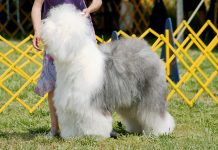History and Origins of the Papillon Breed

The Papillon is a small, elegant toy breed known for its distinctive butterfly-like ears (hence the name, which means “butterfly” in French). Here’s an overview of the history, origins, and physical characteristics of Papillon dogs:
History and Origins
- Ancient Origins: The Papillon’s history can be traced back to the 16th century, where they were popular among European nobility, especially in France, Spain, and Italy. They were often depicted in paintings alongside noblewomen.
- European Royalty: Papillons were favored by European royalty, including Louis XIV of France and Marie Antoinette. They became known as “the butterfly dog” due to their characteristic fringed ears resembling butterfly wings.
- Evolution of the Breed: Over time, the Papillon breed was refined and bred for its elegant appearance and charming temperament, leading to the development of the modern Papillon breed we know today.
Physical Characteristics and Appearance
- Size: Papillons are a small toy breed, standing at around 8 to 11 inches (20 to 28 cm) tall at the shoulder.
- Build: They have a fine-boned, delicate build with a well-proportioned body and graceful appearance.
- Coat: The Papillon’s coat is silky, long, and flowing, with a fine texture. They have a frill of longer hair around the chest, neck, and ears. The coat color can be white with patches of any color (most commonly black and white, sable, or red).
- Butterfly Ears: One of the most distinctive features of the Papillon is its large, fringed ears that resemble butterfly wings. The ears are upright and heavily fringed with long hair, framing the face beautifully.
- Face: Papillons have an alert and expressive face with large, round, dark eyes that convey intelligence and curiosity. They have a fine muzzle and a slight stop.
- Tail: The Papillon’s tail is long, plumed, and carried over the back like a waving plume.
- Temperament: Papillons are known for their friendly, outgoing, and intelligent nature. They are alert, active, and eager to please, making them excellent companions for families and individuals alike.
- Exercise Needs: Despite their small size, Papillons are energetic dogs that enjoy daily walks and play sessions. They are adaptable to various living situations, including apartments, as long as they receive sufficient exercise and mental stimulation.
- Grooming: Regular grooming is essential to maintain the Papillon’s silky coat and prevent tangles and mats. Weekly brushing and occasional baths are recommended.
Overall, Papillons are a delightful breed known for their elegant appearance, charming personality, and historical association with European royalty. They are affectionate, playful, and intelligent companions that thrive in loving homes where they receive attention and engagement from their families.
Papillon Temperament and Personality Traits
Papillons are beloved for their friendly, intelligent, and lively temperament. Here are the key personality traits and training/socialization needs of Papillon dogs:
Temperament and Personality Traits
- Friendly and Sociable: Papillons are generally outgoing and enjoy being around people. They are affectionate with their families and often seek attention and companionship.
- Intelligent and Alert: Papillons are highly intelligent dogs with a keen sense of awareness. They are quick learners and excel in obedience training and learning tricks.
- Playful and Energetic: Despite their small size, Papillons are energetic and enjoy playtime. They have a playful demeanor and can be quite entertaining with their antics.
- Confident and Bold: Papillons are not shy dogs. They have a confident demeanor and may exhibit a fearless attitude, especially when interacting with larger dogs.
- Curious and Inquisitive: Papillons are curious by nature and like to explore their surroundings. They enjoy new experiences and thrive on mental stimulation.
- Alert Watchdogs: Papillons have a strong sense of hearing and are naturally alert. They will often alert their owners to any unusual sounds or activities.
- Good with Children and Other Pets: When properly socialized, Papillons are usually good with children and get along well with other pets in the household.
- Loyal and Affectionate: Papillons form strong bonds with their families and are known for their loyalty and devotion.
Training and Socialization Needs
- Positive Reinforcement Training: Papillons respond well to positive reinforcement training methods, such as treats, praise, and play. They are eager to please and enjoy learning new tricks and commands.
- Early Socialization: Expose your Papillon puppy to various people, animals, environments, and experiences from a young age. Early socialization helps prevent shyness or fearfulness later in life.
- Obedience Training: Start obedience training early to establish good manners and reinforce positive behavior. Papillons are intelligent and benefit from mental challenges.
- Exercise and Mental Stimulation: Despite their small size, Papillons have moderate exercise needs. Daily walks, play sessions, and interactive games are essential to keep them physically and mentally stimulated.
- Consistency and Patience: Be consistent and patient in your training approach with Papillons. They respond well to a calm and positive training atmosphere.
- Regular Exercise: Provide opportunities for exercise and play to prevent boredom and excess energy. Interactive toys and puzzle games can also help keep their minds engaged.
- Bonding Time: Spend quality time bonding with your Papillon through training, playtime, and snuggling. They thrive on companionship and enjoy being part of family activities.
By meeting the socialization and training needs of Papillons, you can help them develop into well-rounded, well-behaved companions that bring joy and companionship to your household. Their intelligence, playful nature, and affectionate personality make them wonderful family pets for active individuals and families alike.
Health Considerations and Common Issues in Papillons
Papillons are generally healthy dogs with a lifespan of around 14 to 16 years. However, like all breeds, they are prone to certain health considerations and common issues. Here’s what you need to know about Papillon health and suitable environments for living with this breed:
Health Considerations and Common Issues
- Patellar Luxation: This is a common orthopedic issue in Papillons where the kneecap dislocates from its normal position. It can cause lameness and discomfort but can often be managed with medication or surgery.
- Progressive Retinal Atrophy (PRA): PRA is a hereditary eye condition that can lead to blindness over time. Responsible breeders will screen their breeding dogs for PRA to reduce the risk of passing it on to puppies.
- Dental Issues: Papillons are prone to dental problems, including tooth loss and gum disease. Regular dental care, including brushing their teeth and providing dental chews, is essential.
- Hypoglycemia: Due to their small size and high metabolism, Papillon puppies can be susceptible to low blood sugar levels (hypoglycemia). This can cause weakness, seizures, and fainting. Puppies should be fed small, frequent meals to prevent this.
- Heart Conditions: Some Papillons may develop heart murmurs or other cardiac issues, which may require monitoring by a veterinarian.
- Allergies: Like many small breeds, Papillons can develop allergies to certain foods, environmental factors, or flea bites. Watch for signs of itching, skin irritation, or digestive issues.
- Luxating Patellas: This is a common orthopedic issue in Papillons where the kneecap may slip out of place, causing discomfort or lameness.
Regular veterinary check-ups and early intervention are essential for maintaining your Papillon’s health and addressing any potential issues promptly.
Suitable Environments and Lifestyle Considerations
- Indoor Living: Papillons thrive as indoor companions due to their small size and sensitivity to extreme weather conditions. They are well-suited to apartment living as long as they receive regular exercise.
- Exercise Needs: Despite their small size, Papillons are active dogs that require daily exercise. They enjoy short walks, playtime, and mental stimulation through training and interactive toys.
- Grooming Requirements: Papillons have a long, silky coat that requires regular grooming to prevent mats and tangles. Brush their coat several times a week and trim their nails as needed.
- Safety Precautions: Due to their small size, Papillons should be supervised around larger dogs and children to prevent accidental injury.
- Affection and Companionship: Papillons are social dogs that thrive on companionship. They enjoy being part of family activities and should not be left alone for long periods.
- Training and Mental Stimulation: Keep your Papillon mentally stimulated with training sessions, puzzle toys, and interactive games. They excel in obedience and agility activities.
Overall, Papillons make delightful companions for individuals and families willing to provide them with the love, attention, and care they need. With proper health care, regular exercise, and a nurturing environment, your Papillon can live a happy, healthy life as a cherished member of your household.
Papillon Variations and Breeding Practices

Papillons are a breed with distinct characteristics and variations within the breed standards. While they generally adhere closely to the breed standard, there can be some variations in coat color and size. Here’s a closer look at variations and breeding practices related to Papillons:
Variations in Papillons
- Coat Colors: Papillons typically have a white coat with patches of color, which can include black, red, sable, or a combination of these colors. Some Papillons may have a solid-colored coat with minimal markings.
- Size Variations: Papillons are a toy breed with a preferred height range of 8 to 11 inches (20 to 28 cm) at the shoulder. However, there can be variations in size within the breed, with some individuals being slightly smaller or larger while still conforming to breed standards.
- Ear Fringing: The butterfly-like ears are a hallmark of the Papillon breed. Some individuals may have more pronounced ear fringing than others, enhancing the butterfly-like appearance.
Breeding Practices for Papillons
- Health Screening: Responsible breeders prioritize the health of their Papillons by conducting health screenings for genetic conditions common in the breed, such as patellar luxation, progressive retinal atrophy (PRA), and heart issues. Clearances from health screenings help ensure that breeding dogs are healthy and free from hereditary diseases.
- Conformation to Breed Standards: Ethical breeders select breeding pairs based on conformation to breed standards, including physical appearance, coat quality, and temperament. The goal is to produce puppies that exemplify the breed’s characteristics and adhere to breed standards set by kennel clubs.
- Genetic Diversity: Maintaining genetic diversity is important in Papillon breeding to prevent the propagation of inherited health issues and promote overall breed vitality. Responsible breeders may introduce new bloodlines or collaborate with other breeders to diversify the gene pool while adhering to breed standards.
- Temperament and Socialization: Breeders focus on producing Papillons with stable and friendly temperaments. Early socialization plays a crucial role in shaping a Papillon’s behavior and ensuring they are well-adjusted and confident dogs.
- Ethical Practices: Reputable breeders prioritize the welfare of their dogs and adhere to ethical breeding practices. They provide proper care, nutrition, socialization, and veterinary attention to their breeding dogs and puppies.
- Kennel Club Affiliations: Many responsible Papillon breeders are affiliated with national breed clubs or kennel clubs that promote breed standards, health guidelines, and ethical breeding practices. Membership in these organizations helps breeders stay informed and connected within the breeding community.
By supporting responsible breeding practices and choosing reputable breeders who prioritize health, temperament, and adherence to breed standards, prospective Papillon owners can acquire healthy and well-adjusted puppies that embody the breed’s distinctive traits and characteristics. Ethical breeding practices contribute to the preservation and improvement of the Papillon breed for future generations.
50 Best Names with Meanings for Papillons
Choosing the perfect name for your Papillon can be a fun and meaningful experience. Here are 50 unique names along with their meanings that you might consider for your Papillon:
- Belle – French for “beautiful”
- Leo – Latin for “lion”
- Luna – Latin for “moon”
- Fleur – French for “flower”
- Oliver – Means “olive tree”
- Piper – Means “flute player”
- Milo – Derived from the name Miles, meaning “soldier” or “merciful”
- Stella – Latin for “star”
- Coco – Short for “cocoa bean” or “coconut”
- Scout – Means “to listen” or “observe”
- Daisy – Represents the daisy flower
- Winston – Means “joy stone”
- Ruby – Represents the precious gemstone
- Teddy – Short for “Theodore,” meaning “gift of God”
- Poppy – Represents the poppy flower
- Archie – Derived from “Archibald,” meaning “genuine” or “bold”
- Mia – Italian for “mine” or “beloved”
- Baxter – Means “baker”
- Willow – Represents the willow tree
- Ella – Means “beautiful fairy”
- Loki – Norse god of mischief
- Penny – Represents a small coin
- Oscar – Means “God spear”
- Zoe – Greek for “life”
- Cody – Means “helpful”
- Sophie – Greek for “wisdom”
- Finn – Means “fair” or “white”
- Misty – Represents fog or mist
- Jasper – Represents the gemstone
- Lola – Means “lady of sorrows”
- Rocco – Means “rest”
- Hazel – Represents the hazelnut tree
- Loki – Norse god of mischief
- Pippin – Means “awe-inspiring”
- Bella – Means “beautiful”
- Cody – Means “helpful”
- Rosie – Represents the rose flower
- Gus – Short for “Augustus,” meaning “majestic”
- Ivy – Represents the climbing plant
- Max – Short for “Maxwell,” meaning “great stream”
- Toby – Means “God is good”
- Pixie – Represents a mischievous fairy
- Riley – Means “courageous”
- Harley – Means “hare’s meadow”
- Zara – Arabic for “princess” or “flower”
- Ollie – Short for “Oliver,” meaning “olive tree”
- Lucy – Means “light”
- Winnie – Short for “Winifred,” meaning “blessed peacemaking”
- Pablo – Means “small” or “humble”
- Mika – Means “beautiful fragrance” in Japanese
Choose a name that resonates with your Papillon’s personality, appearance, or your personal preferences. Whether you prefer a classic, playful, or unique name, these options offer a variety of choices for your beloved Papillon companion.

In conclusion, this comprehensive guide has provided a detailed overview of Papillon dogs, highlighting their unique characteristics and essential care considerations. Throughout our exploration, we’ve delved into the history, distinctive traits, and important aspects of owning a Papillon. Known for their intelligence, elegance, and lively personality, Papillons make wonderful companions for individuals and families seeking a small yet spirited pet.
Papillon dogs excel in activities such as agility, obedience, and companionship, showcasing their adaptability and eagerness to engage with their owners. As you embark on your journey with a Papillon, may you appreciate their remarkable qualities and form a strong bond with this charming and energetic breed, creating lasting companionship and joy together. Remember to provide them with regular exercise, mental stimulation, and affection to ensure they thrive and remain happy companions in your life. With their friendly disposition and graceful appearance, Papillon dogs are sure to bring delight and companionship to your home.






























